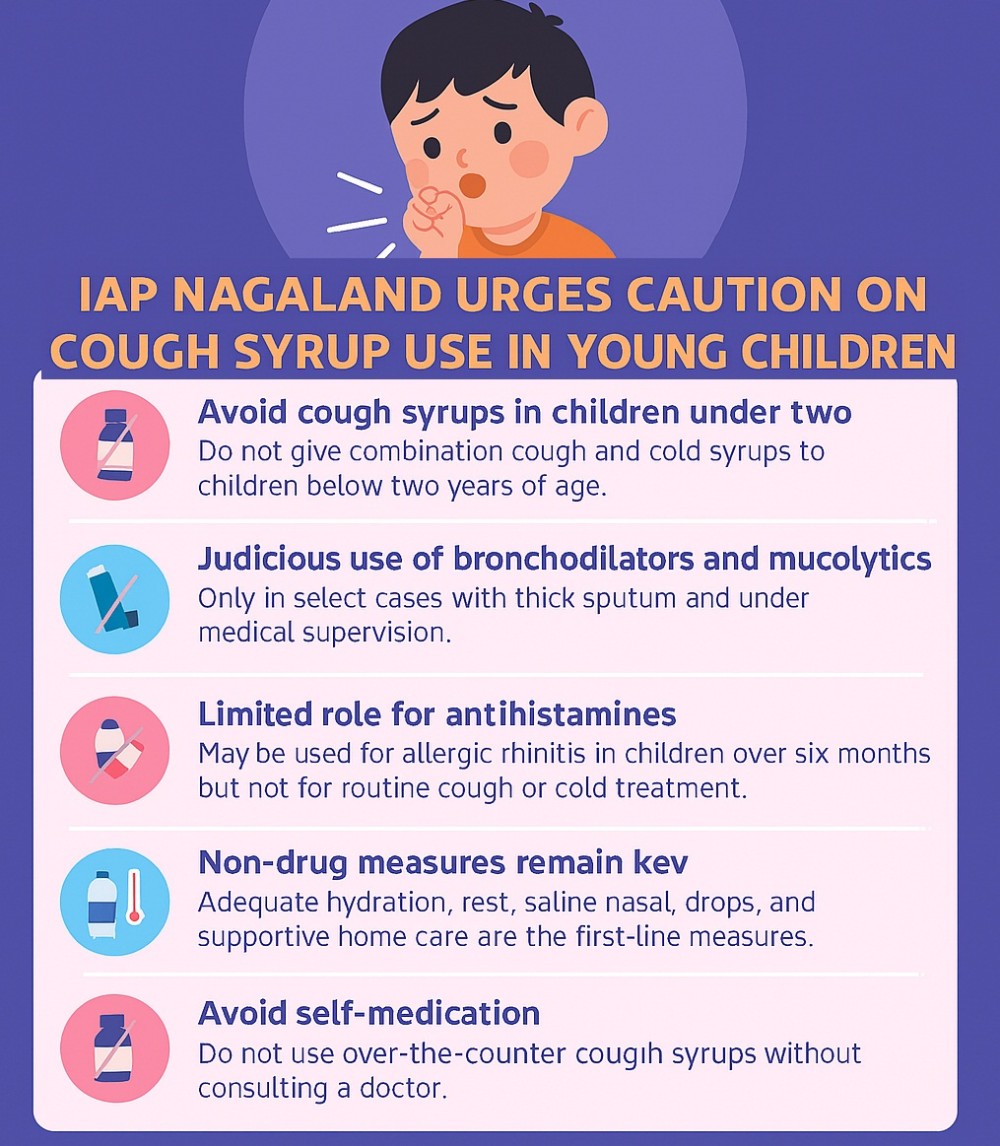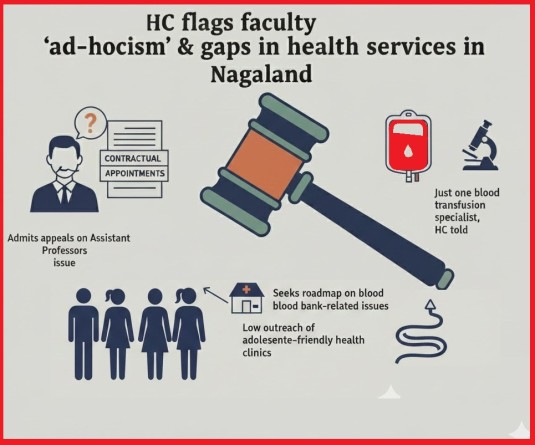
Dimapur, October 5 (MExN): The Indian Academy of Pediatrics (IAP) Nagaland State Branch has alerted parents and caregivers to exercise caution regarding the use of cough syrups in children, following a recent advisory from the Directorate General of Health Services (DGHS), Government of India.
The advisory highlighted that most cough and cold illnesses in young children are mild, self-limiting, and often resolve without medication. The IAP has emphasised safe, evidence-based approaches to managing these conditions.
The IAP State Branch highlighted the key points of the advisory for public awareness.
Avoiding cough syrups under two
The IAP cautioned against the use of combination cough and cold syrups in children below two years of age without a doctor’s advice. “These medicines should only be given after a proper clinical evaluation and strictly following recommended dosages,” the statement said.
Judicious use of bronchodilators and mucolytics
For children with cough due to bronchospasm, asthma, or wheezing disorders, bronchodilators such as salbutamol or levosalbutamol may be used, preferably through inhalation under medical supervision. Mucolytics or expectorants like ambroxol, bromhexine, or acetylcysteine may be considered only in select cases with thick, tenacious sputum and under pediatric guidance. Routine or unsupervised use, particularly in infants and toddlers, is discouraged, the IAP added.
Limited role for antihistamines
It further highlighted that antihistamines may be used in children over six months for conditions like allergic rhinitis but are not recommended for routine treatment of simple coughs or colds.
Non-drug measures remain key
The IAP stressed that adequate hydration, rest, saline nasal drops, and supportive home care are the safest and most effective first-line measures for managing childhood coughs and colds.
Avoid self-medication
Parents are urged to avoid over-the-counter cough syrups without consulting a doctor. The IAP called on healthcare providers and caregivers to follow rational, evidence-based practices to ensure the safety and well-being of children.


.jpg)



